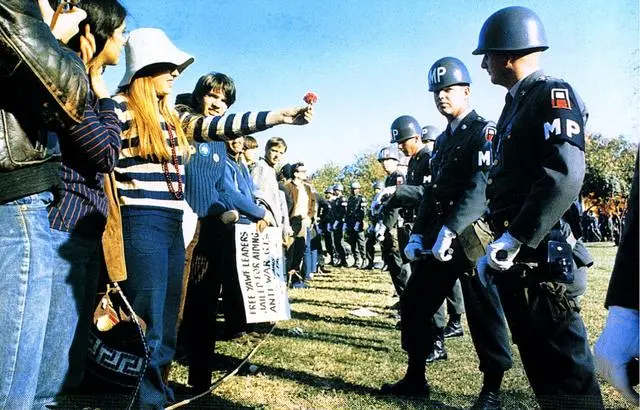This article is based on a conversation with Daniele Taurino, activist of the Italian Nonviolent Movement.
Conscientious objection is a recognised worldwide right, already in use during the Second World War (think of Hacksaw Ridge). Little publicised by nation-states, which have no interest in anti-militarist propaganda, or in suggesting the existence of other ways of resolving international disputes than armed conflict. amongst these states, which still includes the majority of European states today, are Russia and Ukraine.
Both states included conscientious objection in their constitutions, Russia in 1993 and Ukraine in 2014, so in both states there are recognised peace movements (Ukraine) and a conscientious objector movement (Russia) that have stable relationships with the government.
In Russia, military service is mandatory for all citizens between the ages of 18 and 27 years old, and has been reduced to 12 months since 2008. The possibility for conscientious objection, for those few who know of its existence, provides for an alternative service of 21 months – as opposed to 12 months of military service. This alternative service has been defined by the Russian peace movements as ‘punitive’: a series of procedures are implemented to disincentive those who prefer alternative service. In addition to being longer, the service is normally performed far from home (which given the size of the Russian state is no joke) and in any case with paramilitary organisations.
In Ukraine, the situation is quite different. The only valid recognition for conscientious objectors is related to religion. So, for example, a Jehovah’s Witness, since he cannot take political positions due to his faith, can apply to be exempted from service. However, even before 24 February 2022, only 1200 out of 5000 applications for exemption have been accepted.
With the beginning of the conflict, the situation radicalised, but not for both factions. Russia did not change its policy towards the objectors, due to a few factors. First of all, according to the Russian government, what we call the ‘War in Ukraine’ is actually a ‘special military operation’, so there is no state of war, no act of war, no martial law and no state of emergency procedures, and the president can only call a ‘partial mobilisation’. Since February, and especially when the news of Russian deaths at the front began to spread within the country, Russian objectors have increased, along with defectors, who have risen from 0 to 15,000 in nine months of conflict (with many escaping thanks to the extraordinary coordination of the ‘branches’ of the nonviolent movement such as the Italian, Finnish, Russian, and German ones).
In Ukraine, the situation is more critical, for several reasons that we can easily imagine. Threat levels have been heightened since 2014, i.e. since Putin started threatening to invade, and since the Donbass war broke out between pro-Russian separatists and the established power. Since then, Kiev – supported by NATO against both Russia and the pro-Russians – has signed an agreement with the United States to train its officers at the Pentagon, enlisted more and more young people, and opened applications to women, thus investing heavily in the Ukrainian army. Finally, in 2014, the Kiev government approved martial law. Martial law by its very nature suspends the ‘ordinary’ state: military courts take over the normal administration of justice, and certain rights normally guaranteed to citizens, such as conscientious objection, are curtailed. There are many cases of several Jehovah’s Witnesses being processed by Ukrainian military courts as traitors to the homeland (and, of course, often also lynched by nationalist groups). This fate is similar to that of Ruslan Kotsaba, a Ukrainian journalist prosecuted, imprisoned and targeted by various nationalist groups for publicly expressing his pacifist ideas.
The Ukrainian Pacifist Movement has officially demanded that the government, headed by President Zelensky, recognise conscientious objectors and their right not to fight. The answer from Defence Minister Colonel Oleg Khrystenko was: “the implementation of the constitutional right of citizens to undergo alternative (nonmilitary) service under the conditions of the legal regime of martial law and during mobilisation, due to the absence of conscription for term‐limited military service, is not applicable. In addition, we inform you that the Law of Ukraine “On Mobilisation Training and Mobilisation” does not provide for alternative (nonmilitary) service for conscripts who are called up for military service during mobilisation”.
The difference between the two countries is that in Russia there already exists a liberticidal state, and conscientious objection is not an issue because the objectors are not many. In Ukraine, nationalist sentiment before Zelensky’s election was almost completely absent, so the government’s measures must take this into account.
Published on The University Observer on 17th November 2022.
Photo credits: theconversation.com
